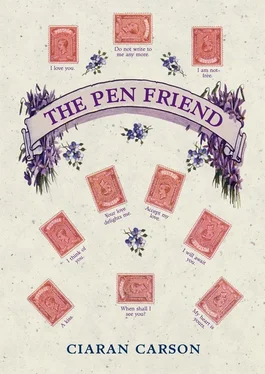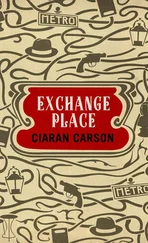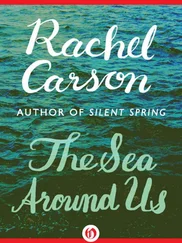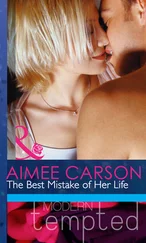Just after dawn the helicopter swooped away and dwindled into silence. I was left with the not unfamiliar feeling that I had somehow been drained of my identity by this infringement of my acoustic space. And I was reminded again of how, in the 1970s, young Catholic men like me would be routinely stopped by British army patrols, spread-eagled against a wall, and interrogated for some hours as to our identities. Our names. Where we lived. What we did for a living, if anything. Our parents’ names. Those of our relatives, our friends, our colleagues, our associates. We soon learned that these details were already known anyway, as they were checked by a field-radio link to a central database; so these regular interrogations seemed a gratuitously thorough exercise. Some names, though, Irish names, proved difficult for the English soldiers: Fintan, for example, would be pronounced by them as Victor, Ciaran as Karen, and Manus as Menace. Fiach was Fake. Then there were the Irish-speaking zealots who would refuse to respond to questions put in English, though they spoke it better than they did Irish, and would demand an interpreter to be present at their interrogations: but this procedural difficulty was often easily circumvented, as an Irish-speaking companion would provide that service, the two acting as interpreters for each other. I was once forced to become one half of such a double act myself, having been latched on to by a drunk, Irish-speaking acquaintance of my father, on the way home from the pub one night.
Such episodes were clearer in my memory when I related them to you, back in 1982 and 1983. Isn’t it extraordinary, I’d say, that the Powers That Be seem to know everything about everyone — or at least the Catholic population, I could not speak for the other side, though it did seem their identities were not so thoroughly examined — yet they can’t identify who really is who, and who’s doing what. Well, you’d say, so-called intelligence is one thing; knowing what it means is another, and the same information can be used to draw very different conclusions by different parties, with different vested interests. It depends how you look at it, you’d say. That’s why they invented MO2, because we don’t draw any conclusions, we just exist. The information is what we are. And again I would try to get to the bottom of what precisely you were, or what you and your colleagues did. Let me put it like this, you said. When I was brought up for my differentiation, as they called it, it was a kind of interview, Callaghan was there and he had this side-kick I’d never seen before. Callaghan introduces him as ‘my esteemed colleague Mr Bentley’. Bentley’s this chap in a lovely suit, really dark blue with a faint grey chalk stripe, must be Savile Row, he’s wearing Crocket & Jones black Oxfords, but he’s also got this unconventional touch, floppy-collared linen shirt, light blue with a pink needle-stripe, and quite a stunning tie, deep russet moiré silk, and Callaghan, he’s wearing his usual baggy professorial tweeds.
Anyway, there’s just the two of them, we’re in Callaghan’s office. Lovely room, he’s got the original warehouse wide-planked flooring sanded and waxed — nothing so crude as that polyurethane varnish — and he’s got a few Persian tribal rugs scattered on them, and there’s some lovely Art Nouveau furniture, a burr walnut drinks cabinet with a sunburst motif on it, nice settee and chairs in cut moquette, that kind of thing. Good art on the walls, you’d like it, Gabriel, there’s a Maurice Wilks landscape, and a Paul Henry, one of those Connemara ones which is mostly sky, clouds tumbling all over the place. There’s a nice Colin Middleton from his Surrealist phase.
Callaghan pours us all a good glass of brandy to begin, and offers me a cigarette from a cedar box, though he knows I don’t smoke, it’s all very informal. Bentley lights up a pipe, and Callaghan gestures for me to sit on the settee. Bentley and himself sprawl out in these easy chairs. Well, says Callaghan, Miranda, if I might call you Miranda, we’ve looked at your differentiation outline, and it’s very good, very well thought out, says Callaghan. Yes, very well thought out, says Bentley in a cut-glass Oxford accent, and the way he says it, it’s not like he’s repeating what Callaghan said, he’s adding to it, he puts a different spin on it, and Bentley smiles meaningfully as he says this, and then Callaghan says, Yes, we’d just like to explore it a bit further, get a clearer picture of what you have in mind. Yes, says Bentley, a clearer picture. Of what you have in mind, says Bentley, and again this seems to mean something else to what Callaghan meant. But first, says Callaghan, purely procedural matter, don’t you know, let’s be sure we’ve got the right woman, and he laughs as if he’s just made a joke, and Bentley says, between puffs of his pipe, Yes. The. Right. Woman.
So Callaghan’s got this dossier on his lap, and he opens it and says, Miranda Bowyer. Born London, 11th June, 1951, parents Arie Bouwer, Dutch national, and Eleanor Bowyer, née Birtwhistle, and so on, the dossier’s got where I went to school, my university career, what I subsequently did, they’ve got everything, they’ve got things about me that I’d forgotten, maybe things about me I didn’t even know. And every so often he looks up at me and says, Correct? And I nod, and Bentley says, Yes. Correct. Well, that’s good, says Callaghan, we like to know who we’re dealing with, and he laughs again. And this time Bentley doesn’t echo his words, but he says, Well, Miranda, if I might call you Miranda, we’ve looked very carefully at your outline, it’s excellent, design consultancy, it’s a good niche market thing, we’ll go into all that later in more detail, but for now, it seems to me that the best way to advance this little session is for you perhaps to give us a broader understanding of your role in the organisation, well, not so much that, but we’d like you to be clear about what we do. I mean, what do you think we do? says Bentley, and Callaghan says, Yes, what do you think we do?
So I’m a bit put out by this. And oh, do take your time, they both say together then, and they look at each other like Tweedledum and Tweedledee, and I’m beginning to feel like Alice in Wonderland, so I start talking off the top of my head, and I says, Well, I’m looking at the art on the wall here, and it seems to me it must be representative in some way of what you do. You’ve been very careful in researching my background, and I’m sure the organisation is equally meticulous in its design choices. Take the Maurice Wilks, now. And Callaghan and Bentley crane their necks to look at it, as if they’d never seen it before, it’s one of those Bridge at Cushendun pieces, but a good cut above the normal, nice scumbling to the clouds, Wilks, born when, 1911, 1912, year of the UVF gun-running operation, Protestant background, son of a linen designer, why, his father might have worked in these very premises, I said, and Callaghan and Bentley nod sagely at this, and Maurice goes to the local College of Art, he’s a star pupil, exhibits at the RHA when he’s only nineteen. Starts to specialise in landscapes, spends a lot of time in the Glens of Antrim, Connemara, Donegal, those kinds of Irish landscapes, mountains and skies. It’s ostensibly very conventional, the kind of thing the art-conscious Ulster middle classes like to hang on their walls, but there’s a nice touch of French Impressionism there too, and it’s very well painted. Young artists these days, they could learn a lot from Wilks. And Wilks sees himself more as an Irishman than an Ulsterman, I’d say, though I’ve never met him. Isn’t he living in Dublin now? So the Wilks sends out a message that art can transcend political allegiances, that there are things that are important beyond this fiddle.
Читать дальше












